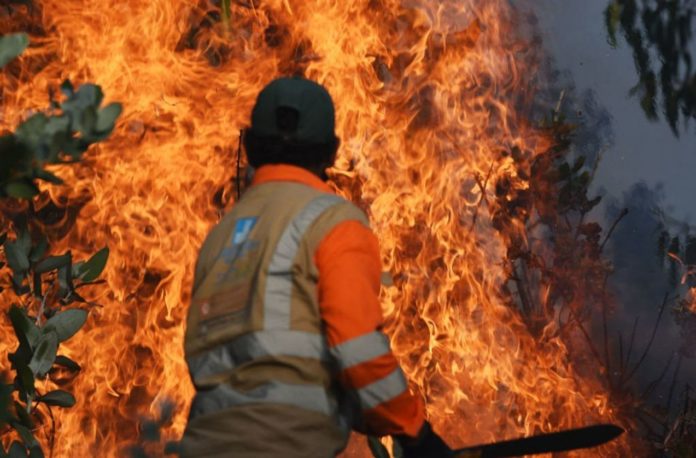“With continued nighttime warming, we expect to see more runaway wildfires that are more intense, faster, and larger.”
A new study says that nighttime fires have become more intense and more common over the last few decades because hot, dry nights are more common these days, making them more likely.
Cool, moist evenings gave comfort to firefighters forty years ago, and “flammable nights” were uncommon. Nights are already rising faster than days as a result of climate change, and there are 11 more flammable nights every year in the United States—a 45 percent increase, according to the researchers.
“Night is the critical time for slowing a speeding fire—and wildfire’s night brakes are failing,” says Jennifer Balch, lead author on the study published in Nature today.
The new study relies on the Vapor Pressure Deficit, or VPD, as a fundamental indicator of the atmosphere’s thirst. When VPD is low, the air is chilly and damp, making fires unable to start. To put out fires, firefighting crews take advantage of the dark conditions. When the VPD is high, however, the air is hot, dry, parched, and ready to burn.
And, first and foremost, the researchers evaluated satellite observations and hourly temperature data for 81,000 global fires to find the exact VPD tipping point, which occurs when the weather gets hot and dry enough to burn at night. In the previous 40 years, the researchers discovered an extra week of flammable nights in a quarter of the world’s burnable regions. And it climbed even more in the western United States: 11 nights, a 45 percent increase over four decades (1979-2020).
The scientists also evaluated fire progression hourly for tens of thousands of fire episodes using a novel remote sensing and modeling technique. They also discovered that night fires had been 7.2 percent more severe globally between 2003 and 2020. That number was substantially greater in the United States West: 28 percent.
In addition, Balch and her team found:
- a 36% increase of flammable nighttime hours between 1979 and 2020. By comparison, daytime flammable hours “only” increased by 27%.
- certain ecosystems were hit harder than others: evergreen and broadleaf forests, shrublands and grasslands.
- and they expect to see changing fire emissions resulting from lower intensity or smoldering burning that often occurs at night.
“People tend to pay more attention to conditions during the daytime: when fires are most active. But there’s not enough attention put on nighttime: when cooler conditions tend to slow fires down or even extinguish them completely,” adds Adam Mahood, co-author of the paper.
And nighttime matters: over the last seven decades, human-caused climate change has warmed the night more than the day—and it’s just going to get worse from here, according to the researchers.
Recent severe wildfires in December 2021—the Marshall Fire in Boulder County, Colorado, and the Midwestern Kansas Fire in midwestern Kansas—highlight the significance of better understanding the climate-related drivers of wildfire.
“With continued nighttime warming, we expect to see more runaway wildfires that are more intense, faster, and larger,” adds Balch. “That means firefighters don’t get the breaks at night they used to get—they have to battle flames 24/7.”
Source: 10.1038/s41586-021-04325-1
Image Credit: Getty
You were reading: Warmer, drier nights can no longer dampen wildfires’ flames
